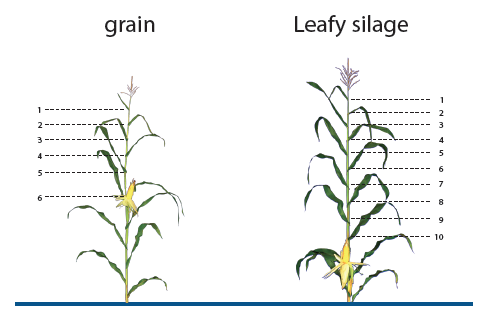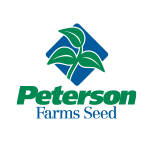Do You Need Corn Silage in Your Bracket This Season?

The annual “March Madness” NCAA basketball tournament is wrapping up, and fans across the country have been busy monitoring their brackets. To predict which teams will win, fans look at many different criteria: key players, coaching skill, offensive and defensive capabilities, and more.
When you think about it, that’s kind of like choosing which corn hybrid to plant. You need to weigh many factors, all of which could make the difference.
For instance, if you are a corn silage user, then you have to look at criteria beyond the basics when choosing a hybrid. All corn varieties do not make for efficient, economic silage. Do you want a dual purpose hybrid (with both grain corn and silage characteristics) or a silage-specific hybrid?
For “championship” silage, choose a silage-specific hybrid. There are many considerations when growing corn for feed: yield (total plant tons), rumen digestibility, starch digestibility, lower lignin, softer starch, and slower drydown. A silage-specific hybrid will provide these characteristics. Peterson Farms Seed has great silage-specific hybrids, including 2MD95 and 2MD02.
Once you’ve selected a silage hybrid, focus on plant population. We often hear that corn hybrids should be planted at high populations in order to maximize yield. But, planting silage hybrids at high populations will not produce the best yields or feed quality.
The yield potential of corn is related to its leaf area index. As shown in the image above, grain corn hybrids produce 5-7 leaves above the ear while silage hybrids have 8-13 leaves above the ear. Because silage hybrids are larger with more leaf area per plant, they need more room to produce a crop – so they should be planted at a lower population. Lower plant population is the key to maximum yield potential for silage-specific hybrids. The following chart compares plant population of a silage hybrid vs. a grain hybrid:
Meeting your silage needs involves balancing yield, nutrition, agronomics, management and other factors. Think about it this way: When you filled in your NCAA bracket, it wasn’t enough to just casually think about which teams are your favorite. To have a great tournament, you’ve got to look at the details and balance different factors of performance for a shot at making the championship game.
Similarly, by keeping your silage needs in mind when picking a hybrid, you can ensure a successful season—a growing season, that is.
 Lee Buchholz is an exclusive Peterson Farms Seed Dealer in the Grey Eagle-Long Prairie, MN, area. In addition to dairy farming for 35 years, Lee also has managed a seed production and conditioning operation for 20 years, conducted independent corn silage research for 10 years, and is a former Monsanto District Sales Manager. Lee knows corn!
Lee Buchholz is an exclusive Peterson Farms Seed Dealer in the Grey Eagle-Long Prairie, MN, area. In addition to dairy farming for 35 years, Lee also has managed a seed production and conditioning operation for 20 years, conducted independent corn silage research for 10 years, and is a former Monsanto District Sales Manager. Lee knows corn!






